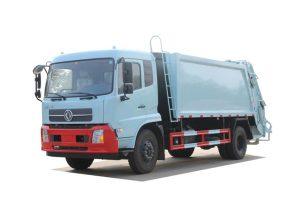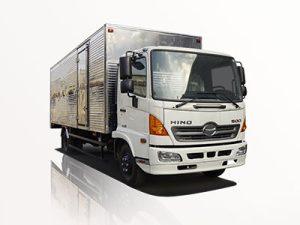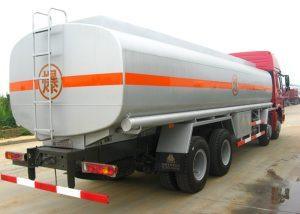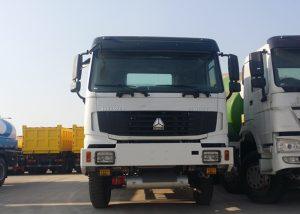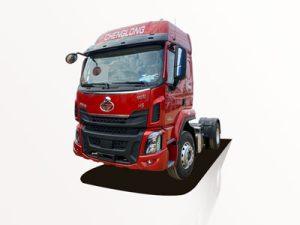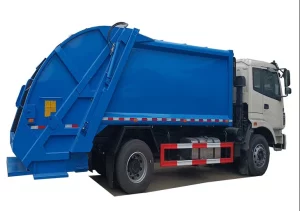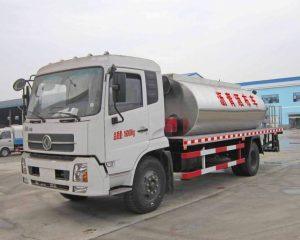Monday to Saturday - 8:00 -17:30
Everything You Need to Know About U Box Trailers
Introduction
U box trailers have emerged as a versatile solution for transporting goods, vehicles, and recreational gear. Whether you’re planning a cross-country move, hauling your bike for a weekend getaway, or just need extra space for your DIY project, U box trailers provide a practical and cost-effective way to manage your transportation needs. In this article, we’ll explore the various aspects of U box trailers, including their specifications, features, usage tips, and more.
What is a U Box Trailer?
A U box trailer is a type of enclosed trailer that is typically used for moving and transporting items. These trailers offer several advantages over traditional open trailers, such as added security and protection from the elements. U box trailers are available in various sizes and configurations to meet diverse hauling needs.
Types of U Box Trailers
- Standard U Box Trailers: Typically designed for general moving purposes, available in various sizes.
- Utility U Box Trailers: Ideal for transporting tools and materials, often has a sturdy design.
- Recreational U Box Trailers: Specifically engineered for outdoor gear like bikes and camping equipment.
Features of U Box Trailers
Understanding the features of a U box trailer can help you determine which model is best for your needs. Below are some key features to consider:
1. Construction Material
U box trailers are often constructed from aluminum or steel, providing a balance between durability and weight. Aluminum trailers are lighter and resistant to rust, while steel trailers are generally more robust and better suited for heavy loads.
2. Size and Capacity
U box trailers come in various sizes, typically ranging from 4×8 feet to larger models up to 6×12 feet or more. The capacity can vary, with most trailers able to carry between 1,500 to 3,000 pounds. When choosing a trailer, ensure it aligns with the volume and weight of items you plan to transport.
3. Security Features
Most U box trailers are equipped with lockable doors and secure latches, ensuring that your belongings are protected when on the road. Some models also feature additional security options like built-in locks and alarm systems.
4. Ventilation
Proper ventilation is essential in preventing moisture buildup inside the trailer, which can cause damage to goods. Many U box trailers come with built-in vents to maintain airflow.
5. Suspension System
A good suspension system improves handling and ride quality, which is crucial when transporting heavy loads. Look for trailers with effective shock absorbers to minimize bumps during transportation.
How to Choose the Right U Box Trailer
Choosing the right U box trailer is critical for a successful hauling experience. Here are some practical considerations to keep in mind:
1. Assess Your Needs
Determine the primary use of the trailer. Are you moving furniture, transporting sports equipment, or something else? Knowing your needs can help you decide the correct size and features.
2. Weight Limit
Always check the weight limit of the trailer versus the weight of the items you plan to transport. Overloading a trailer can lead to serious safety issues and wear.
3. Budget
Set a budget before shopping for a U box trailer. Prices can vary significantly based on the size, construction material, and features. Be sure to factor in additional costs for insurance and maintenance as well.
4. Trailer Rentals vs. Purchases
If you need a trailer for occasional use, renting can be a cost-effective solution. However, if you plan to use it frequently, purchasing may be a better long-term investment.
5. Research Brands
Not all U box trailers are created equal. Research reputable brands and read customer reviews to gauge quality and reliability.
Tips for Using a U Box Trailer
To ensure a smooth transport experience with your U box trailer, consider the following tips:
1. Loading Properly
Load heavier items at the bottom and toward the front for better weight distribution. Use straps or tie-downs to secure items during transport.
2. Pre-Trip Inspection
Before hitting the road, inspect your trailer for any potential issues. Check tire pressure, lights, brakes, and secure connections.
3. Driving with a Trailer
Driving with a trailer requires extra caution. Make wider turns, maintain a safe distance from other vehicles, and reduce your speed, particularly when going uphill or downhill.
4. Unloading Efficiently
When reaching your destination, take your time unloading. Remove items carefully to avoid damage or injury.
Maintenance for U Box Trailers
Maintaining your U box trailer will prolong its lifespan and ensure safety on the road. Here are some essential maintenance tips:
1. Regular Cleaning
Keep the interior and exterior of your trailer clean. Remove dirt and debris that could lead to rust or corrosion.
2. Tire Care
Check tire pressure frequently and examine for wear or damage. Replace tires when necessary to ensure safe travels.
3. Electrical Systems
Test the trailer’s lights and brakes regularly to ensure they’re functioning properly. Replace bulbs as needed.
4. Lubricate Moving Parts
Regularly lubricate the hinges, couplers, and other moving components to keep them operating smoothly.
U Box Trailer Rental Options
If you determine that renting a U box trailer suits your needs better, many companies offer rental services. Below is a comparison of popular rental services:
| Company | Price Range | Available Sizes | Additional Features |
|---|---|---|---|
| U-Haul | $19.95/day | 4×8, 5×8, 6×12 | Online Booking, Locking Systems |
| Penske | $29.99/day | 5×10, 6×12 | 24/7 Roadside Assistance |
| Budget Truck | $20.00/day | 4×8, 5×10 | Flexible Rental Options |
| Home Depot | $20.00 – $35.00/day | 5×8, 6×12 | Tool Rental Availability |
Common Uses for U Box Trailers
U box trailers have a variety of applications across different settings. Here are some common uses:
1. Moving Junk and Household Items
Whether you’re decluttering or moving homes, U box trailers provide ample space to transport furniture, appliances, and other household goods.
2. Transporting Recreational Gear
Outdoor enthusiasts often utilize U box trailers to transport bikes, kayaks, camping gear, and other recreational equipment for trips and adventures.
3. Carrying Construction Materials
Contractors and DIY enthusiasts use U box trailers to haul building materials such as lumber, drywall, and tools for construction projects.
4. Moving Events
For events that require temporary relocation of items, such as fairs or festivals, U box trailers can help transport necessary supplies efficiently.
FAQs about U Box Trailers
1. Can I tow a U box trailer with my car?
It depends on the weight of the trailer and your car’s towing capacity. Always check your vehicle’s specifications before towing.
2. What’s the difference between an enclosed and an open trailer?
Enclosed trailers provide protection from weather and theft, while open trailers are more accessible but lack security and protection.
3. Do U box trailers require a special license to operate?
In most cases, a standard driver’s license is sufficient. However, regulations may vary by state, so it’s best to verify local laws.
4. What are the cost factors for renting a U box trailer?
Factors include the size of the trailer, rental duration, and any additional features like insurance or added security options.
5. How do I secure my belongings in a U box trailer?
Use straps, bungee cords, and tie-downs to secure items and prevent shifting during transport.
6. Can I use a U box trailer for long-distance travel?
Yes, U box trailers are built for long-distance travel but ensure that your vehicle can handle the load and maintain safety measures during the journey.


